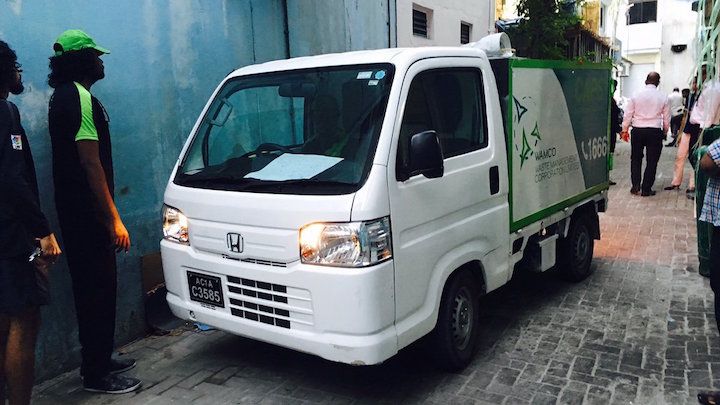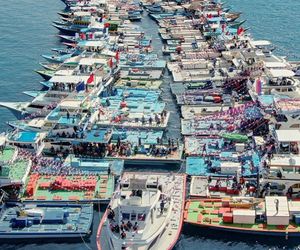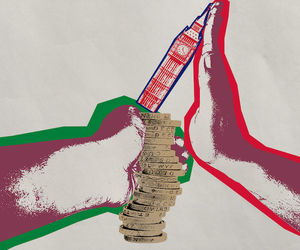Waste management corporation begins garbage collection in Malé
The state-owned Waste Management Corporation began collecting garbage from households in Malé this week as part of a broader effort to establish a waste management network in the capital.

27 Dec 2016, 9:00 AM
The state-owned Waste Management Corporation began collecting garbage from households in Malé on Sunday as part of a broader effort to establish a waste management network in the densely populated capital island.
Under the pilot phase of the project, WAMCO divided Malé into 13 zones and began collecting garbage as a test run from 51 households that registered for the service in zone one, part of the Henveiru ward’s southeastern corner.
WAMCO Managing Director Ibrahim Fuad told the press on Monday that the service will be expanded to cover all 13 zones of Malé during the next six months.
WAMCO is charging a fee of MVR150 (US$10) per month for collection from apartments and MVR100 (US$6) for collection from bins kept outside buildings.
Become a member
Get full access to our archive and personalise your experience.
Already a member?
Discussion
No comments yet. Be the first to share your thoughts!
No comments yet. Be the first to join the conversation!
Join the Conversation
Sign in to share your thoughts under an alias and take part in the discussion. Independent journalism thrives on open, respectful debate — your voice matters.




